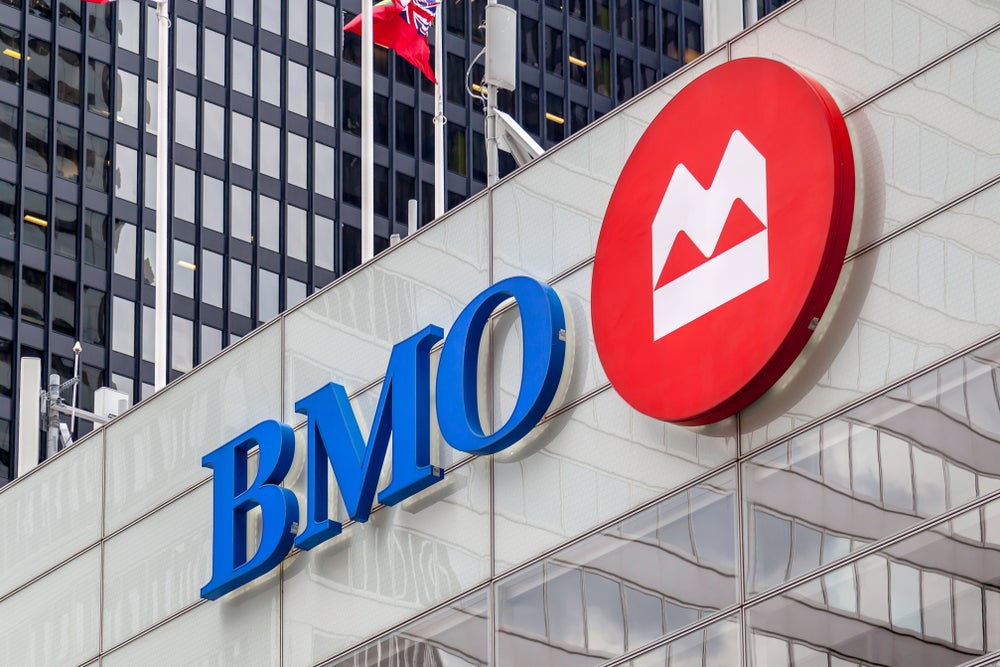
Standard Chartered has risen
quickly since its inception in 2007 to become a private banking
powerhouse in Asia. New global chief executive Shayne Nelson talks
to Nicholas Moody about how he plans to use his wholesale banking
know-how to build the bank into a $100bn contender.
Asia may be the darling region for
banks now but that was not the case in 1997. Thirteen years ago,
South-East Asia saw the start of a financial crisis that caused
slumping currencies, devalued stock markets and plummeting asset
values. Shayne Nelson, the newly appointed chief executive and
global head of private banking at Standard Chartered, experienced
the crisis first hand.
“I [joined Standard Chartered in
early 1997] and had two months of good times in Hong Kong before
the Asian crisis hit, Nelson says.
“A lot of people forget how tough
that [1997] recession was on Asia. We talk about the current
crisis, but compared to what went on in Asia, I’d just about say
‘what crisis?’”
How well do you really know your competitors?
Access the most comprehensive Company Profiles on the market, powered by GlobalData. Save hours of research. Gain competitive edge.

Thank you!
Your download email will arrive shortly
Not ready to buy yet? Download a free sample
We are confident about the unique quality of our Company Profiles. However, we want you to make the most beneficial decision for your business, so we offer a free sample that you can download by submitting the below form
By GlobalDataIt almost seems like the Australian
could be a recession-chaser. After his stint as regional head of
credit for North East Asia he was appointed global chief risk
officer for wholesale banking just in time for the US recession of
2001-2003.
“Australia was pretty good at
boom-bust for a long time in my career, so we got used to managing
recessions,” he says.
“I suppose one of the reasons I
ended up as global chief risk officer was because I had been
through that – I knew what to do. We had a lot of good time bankers
– but a lot couldn’t manage through adversity. There were very few
bad time bankers.”
Fresh
challenges
Now Nelson faces fresh challenges
building Standard Chartered’s private bank to become a genuine
contender, rather than a fresh-faced new entrant.
His plan is to utilise the strong
wholesale and SME links the bank has with business owners and
convert them to private banking clients. Collaboration between the
wholesale, investment and private bank will be crucial for this
strategy to succeed.
Success too is based on the
performance of the emerging market economies, where Standard
Chartered has staked a claim of becoming the world’s best
international private bank in Asia, Africa and the Middle East. A
jitter in these regions could unseat Nelson’s plans to build the
private bank’s assets under management (AuM) to $100bn.
For the moment, Standard
Chartered’s emerging markets focus stands it in good stead.
Established in 2007 and following
the acquisition of the American Express Bank in 2008, its AuM
increased by 26% in Asia and 12% globally in 2009.
In the first half of 2010, its AuM
has grown by 27% in Asia and 12% globally to $45bn with more than
2,500 clients.
Shepherding its SME
customers to the private bank
Shepherding its existing base of
SME-owning clients into the private bank is one of the bank’s key
challenges. About 63% of wealth in Asia comes from business owners,
making it a key market for the bank, Nelson explains (see
chart).
“[We have] many generational
clients, they trust us,” he adds.
“We can look after their business
needs, but we often do not look after their personal needs when it
comes to private banking. It does not mean they do not have private
banking relationships, because they do.
“Our job is to ensure one of those
relationships is with Standard Chartered.”
Nelson is eager to push the value
of Standard Chartered’s integrated model and the leverage it can
get from the accessibility of its consumer bank network, taking
sophisticated products from its wholesale bank and offering all
these services to private bank clients. HSBC is another large scale
bank that aims to offer this overarching service.
“One of our competitive advantages
is that we are in [more than 70] markets, we have got local
currency and a big balance sheet. We can lend you money for your
mortgage in Thailand, London or Singapore,” he says.
Collaboration key to
Nelson’s plan
Collaboration between the wholesale
and private bank is another aim for Nelson. He will not quantify
the volume of referrals, but says about 40% of their AuM growth
this year in Hong Kong has come from collaboration with wholesale
banking. Bankers on both sides of the equation are incentivised to
collaborate by sharing a proportion of the profit.
“I think the wholesale bank can see
the power of private bank in distribution” he says.
“I have been pushing very hard on
the collaboration side because that, to me, is where we can really
make a difference. Both for the benefit of our clients and the
benefit of the organisation as a whole.”
Nelson sees opportunity as much as
risk associated with growing the business.
“People say, ‘You are a risk guy,
you have a risk bent’. But to me risk is opportunity. If you
understand risk, you understand opportunity. The opportunities
depend on the individual. To try to say this is the product that is
the flavour-of-the-month is not the way to be selling.You build
portfolios around the individual, not around what is the current
hot product.”
Crisis will strengthen the
industry: Nelson
Having experienced the Asian
crisis, Nelson thinks the industry will come out stronger from the
current decline – for him its a necessary reminder of what is core
to private banking.
“The days of push-selling are
gone,” he insists.
“Hopefully we will learn a valuable
lesson about what not to do, that wealth preservation and advisory
in the client’s best interests is what the industry should be
adopting.
“If you understand a client’s
business and personal risks, you can structure products around
their needs, rather than give them something they do not need,” he
says.

Eyes firmly on emerging
economies
Where many traditional private
banks are now only just starting to launch emerging market
businesses, for Standard Chartered this segment is critical for
their business, now and in the future.
“Our strategy is all about Asia,
Africa and the Middle East,” Nelson says.
“If I hire a relationship manager
in Geneva or London, their focus will be on the Middle East and
Africa; that’s our strength, that is our competitive advantage, we
know these markets, we love these markets, there is so much
opportunity there.”
Nelson’s strategy buzzwords are
focus, discipline and growth. Staking its claim to the emerging
markets, the bank will be led by a newly repositioned
leadership.
Management
re-alignment
Rajesh Malkani is to head its East
region, comprising South-East and North-East Asia, from Singapore.
Stephen Richards Evans is to head its West region, made up of
India, the Middle East, Africa, Europe and Americas. Richards
Evans, the current regional head for North East Asia, will move to
Dubai for the new position.
“Our ambition for growth is such
that the old structure will not work with the ambition we have. You
can not be a bank that is $45bn and then build it to $100bn and
have the same structure,” Nelson says.
Recent media reports suggest the
bank plans to hire up to 4,000 staff in South-East Asia and its
Indian business aiming to gather $2bn of client assets by the close
of 2010. The bank wants to hire 300 relationship managers (RMs) in
the next three years to increase its ranks to 750 RMs by 2013.
‘Standard Chartered will
outgrow the market’
“Standard Chartered will outgrow
the market in wealth growth,” Nelson says.
“We have hardly touched the surface
of our client base, there is just so much more that we can do. We
have done very well in Hong Kong and Singapore, marketing to China
and Indonesia. But we have hardly touched the surface in the Middle
East and Africa.”
The Middle East is one region
Nelson is particularly excited about. His role before the global
private banking post was regional chief executive officer for the
Middle East and North Africa, chief executive of the United Arab
Emirates and chairman of the Islamic banking board of Standard
Chartered Saadiq.
He says Standard Chartered has been
granted its capital markets authority licence in Saudi Arabia,
including a sub-licence to provide private banking services. It
plans to open for business in the first quarter of 2011. Nelson
sees huge potential in Islamic banking, although concedes that it
is difficult to estimate the potential Shariah-compliant wealth
pool.
“If you look at Saudi Arabia 10
years ago , it was all conventional banking. Now it has completely
flipped [to Shariah-compliant]. There is opportunity there in the
private banking space that no one has tapped into properly,” he
says.
Not in Flavel’s
shadow
There is little doubt that Nelson’s
predecessor, fellow Australian Peter Flavel, could cast a shadow
over his initial tenure. But when questioned about Flavel’s legacy,
Nelson is assertive.
“I’m one of the most senior guys in
Standard Chartered Bank. I do not walk in too many shadows,” he
says.
“My experience and leadership will
speak for itself. I think Peter did a fabulous job and I wish him
well. I think we have a lot more potential for growth.”
For Nelson then it is about being
back to the future. The widespread wealth management interest in
emerging markets, particularly Asia-Pacific, is an area his bank
knows well and where its opportunities lie.
“We are attracting people and
people are approaching us. That is really powerful and we are a
talent magnet,” he concludes.
“It also means people are going to challenge us, but I think we
have the formula to grow the hell out of this business.”







